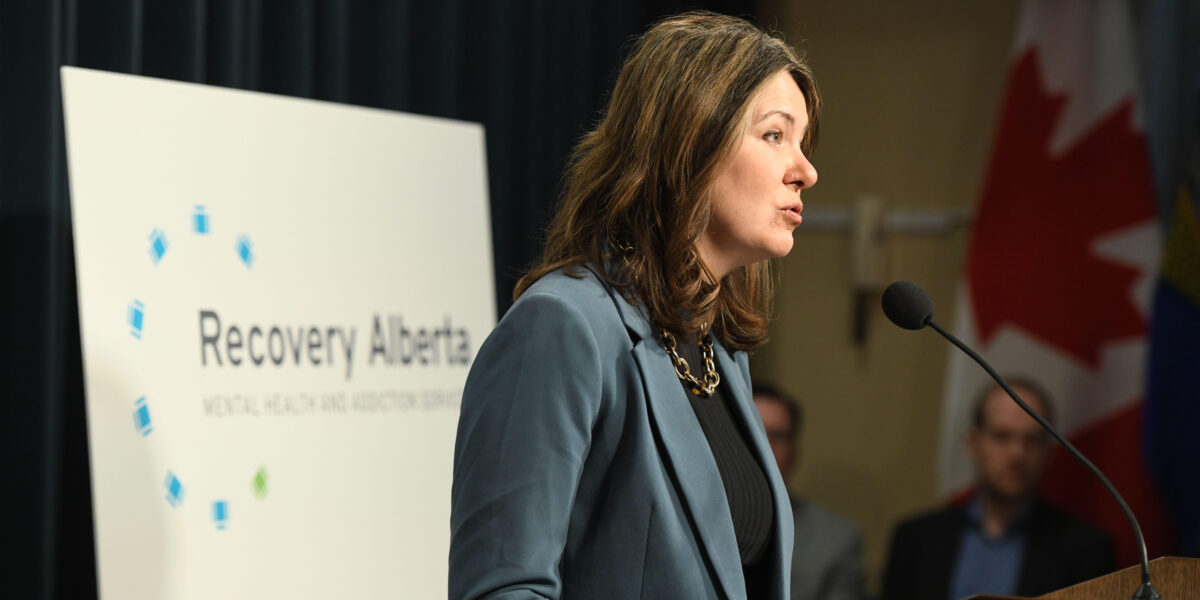As part of the United Conservative Party (UCP)’s plan to refocus health care, on April 2 they announced plans for the new mental health and addiction organization, Recovery Alberta, and a Crown corporation, Canadian Centre for Recovery Excellence (CoRE).
Although these organizations were meant to address issues within the province’s health care system, Sandra Azocar, vice-president of Alberta Union of Provincial Employees (AUPE), is concerned that the push to reform Alberta Health Services (AHS) is an ideological one. As a result, this can affect mental health and addiction treatments while also leaving frontline healthcare workers behind.
When the Alberta government first announced the reform of AHS into four new organizations back in November of 2023, they stated that they wanted to refocus health care. By dividing AHS into four different entities including, acute care, continuing care, primary care and mental health and addiction, the government stated that it aimed to reduce emergency room and surgery wait times, improve access to innovative treatments and recruit more staff.
However, Azocar pointed out that the government is not doing anything to address the core problem. Short staffing has been an ongoing issue in Alberta’s health care system, yet there were no announcements on how this will be addressed. Instead, the focus is on building new entities—an endeavour that Azocar said will be a costly one.
“They’re talking about the fact that Alberta Health Services was such a costly undertaking in our system. Well, these organizations are going to have their own executive directors, their own boards and their own administrative costs attached to them—so are we saving money? My take on that is that we’re not,” Azocar said in an interview with rabble.ca.
While plans to open Recovery Alberta are set for June 3, legislation amendments have yet to be introduced by the Ministry of Mental Health and Addiction.
“There are so many uncertainties, but it’s the fact that they’re restructuring the way that Albertans will receive healthcare—that is a concern. You can’t change a system that impacts over a hundred thousand workers in such a short time without creating chaos, without creating incredible amounts of expenses,” Azocar said.
When it comes to the opioid crisis, Azocar is doubtful that these new organizations will be able to address it. With the introduction of CoRE, Azocar warned that it could be another war room—similar to the Canadian Energy Centre which was criticized for spreading misinformation in order to promote Alberta’s fossil fuel industry.
“This is an ideological-driven government. They have already decided to focus on only one model of treating addiction—and that’s the recovery model. They’re not interested in listening to evidence that supports anything else other than their preconceived ideas,” Azocar said.
“It’s very clear that they have no interest in looking at any other types of models or looking at the harm reduction model as part of treating addictions,” Azocar added.
No consultation with frontline workers when forming new organizations
According to Premier Danielle Smith’s media conference on April 2, there will be no changes to AHS’ employment terms and conditions with the transition to Alberta Recovery—frontline workers and service providers can continue providing care without disruption.
Labour unions such as AUPE and United Nurses of Alberta (UNA), are skeptical of the premier’s statement. The lack of consultation with frontline workers have left AUPE and UNA members in the dark.
With the announcement of Recovery Alberta, the new mental health and addictions organization, Azocar expressed that members were given little information or were even approached to consult on the formation of Recovery Alberta.
“It’s a lack of upstream thinking or planning. When we see changes, very big systemic changes, without upstream thinking it has always resulted in chaos … [the government] is painting it as there will be very little change and workers won’t even notice, but it misleading because any time that you change employers, any time that you change ministries and funding formulas, we know that there will be change,” Azocar said.
“It’s the uncertainty that upsets people, not knowing what your job will look like in the next couple of years,” Azocar added.
UNA which represents over 30,000 people, have also expressed concern over the planning and organization of Recovery Alberta.
“Avery AHS nursing employee will be impacted directly or indirectly by this decision to hive off mental health and addiction services into a separate organization, and it appears there was a serious lack of in-depth planning,” said UNA president Heather Smith in the statement.
While UNA was unable to provide a comment as bargaining and negotiations are currently underway. But according to a statement released on April 2, this left union members with plenty of unanswered questions.
“Despite an information-sharing session with senior managers from AHS and the new Recovery Alberta organizations this morning and a meeting between the AHS and UNA collective agreement bargaining teams this afternoon, few needed answers were provided,” Smith said.
Although the Alberta government have organized engagement sessions later this month, they have come too late.
“The fact remains that these decisions have already been made. We have already been told that this is happening … engagement with frontline workers should happen before significant systemic changes that are made, but in this situation, it hasn’t happened,” Azocar said. “It’s a little too late for them to pretend that engagement will actually change anything.”



